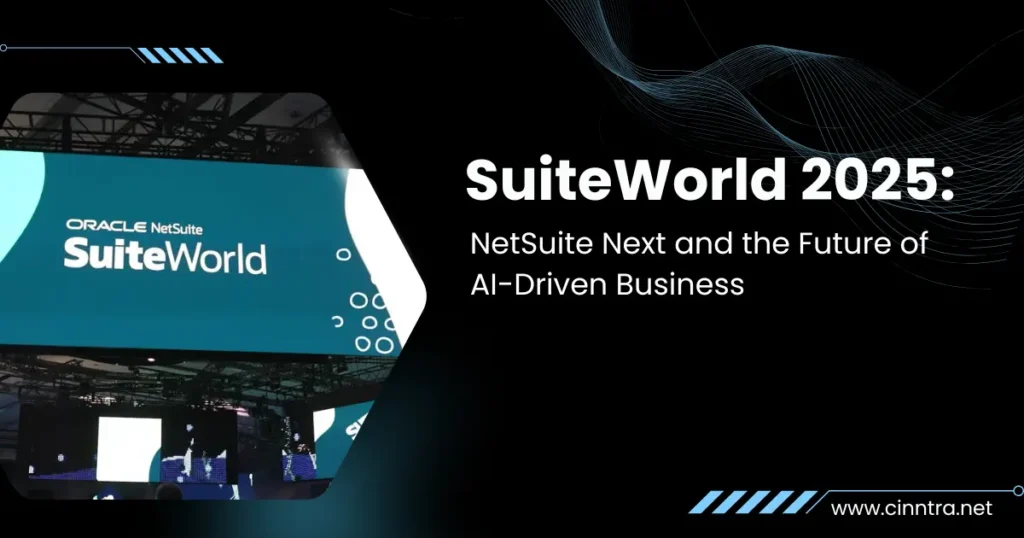Before the emergence of the 2000s, multinational manufacturers had been juggling between spreadsheets, outdated systems, and disconnected processes, often with many of them using manual processes to orchestrate production across multiple sites.
They dealt with daily problems regarding inaccurate inventory levels, late orders, and unknown costs. One executive recalled, “While we had all the data… No insight. We were reacting and not being strategic.
Today, with cloud-based solutions (such as NetSuite for Manufacturing), this scenario seems almost implausible. However, to what extent can an integrated ERP platform help an enterprise scale, innovate, and persist in the face of an uncertain market?
From Disconnected Systems to Cloud ERP
Enterprise Resource Planning has evolved tremendously over the last three decades. Legacy on-premises systems had a high IT burden, offered very little flexibility, and made integration a chore.
NetSuite ERP emerged on the scene as a leader in the SaaS space with a cloud-native platform that combines financials, supply chain, and manufacturing in one ecosystem.
NetSuite’s modular capabilities allow organizations to adopt capabilities a la carte (when needed) and scale towards the business needs. Often, for manufacturers, this means a fundamental shift in mindset as they tear down operational walls and de-segment visibility beyond just their increasingly complex, connected processes with real-time information.
The Benefit of Unified Architecture
At the core of NetSuite for Manufacturing is a unified architecture that integrates finance, production, inventory, and quality management.
NetSuite’s integrated approach anticipates the scaling challenges enterprise manufacturers face, such as information from different systems, parallel workflows, and time lag in decision-making between processes.
The integration of your operations with NetSuite reduces complexity with the use of a single unified system, providing a consistent picture of your business so you can act based on data faster.
NetSuite Production Management: Operational Accuracy
NetSuite Production Management is an enabler for modern manufacturing enterprises. Production managers can schedule work orders, allocate resources, and track work-in-progress in real-time.
It is important to note that a work-in-progress tracking system generates a work-in-progress report based on a static date/time, or one that is not updated, or requires data from time cards, or machines can’t tell if the user loaded or unloaded machines in the past, or realized the assignments accurately. NetSuite provides on-the-spot visibility into labor, machine utilization, materials, and production.
Practically, this means your shop-floor teams can address bottlenecks in real-time, production planners can maximize throughput, and engineers can forecast delivery dates with the certainty of accurate and timely data.
Centralized Product Data and BOM Governance
The foundation of operational effectiveness is accurate product data. A NetSuite ERP will give organizations an integrated, centralized item record, bills of material (BOM), and pedigree tracking across departments, eliminate duplicated item records, and stop information transfers between departments or miscommunicated item specifications, reducing errors and shortening the design-to-production cycle time.
Organizations experience measurable improvement in operational efficiency and product quality when digital BOM and parts catalogs, a single unified Master Parts Item record, unique part specifications, and revision control are utilized.
An organization specifically implementing a centralized PDM and BOM culture and foundation will have to exercise increased planning and post-deployment change management processes. While investments in centralized governance models can impact daily operations, the benefits of consistency and traceability are limited because they are measured only once.
Advanced Planning, Inventory, and Traceability
Forecasting demand and managing material requirements is a chronic concern for all large-scale manufacturers. The manufacturing capabilities in NetSuite ERP use historical trends, predictive analytics, and real-time order information to better position the organization to optimize purchasing and inventory levels.
The inventory system tracks inventory through many warehouses and includes lot and serial number tracking. The strong inventory tracking capabilities decrease stock-out and excess inventory, support regulatory compliance, and help organizations take a proactive role instead of being reactive.
Quality and Cost Integration
One of the many challenges any organization wants to address while remaining competitive in the enterprise space is managing product quality and cost.
NetSuite ERP has a unique capability to direct quality management as part of factory floor production. It allows inspections, nonconformance, and corrective actions to happen in the right context for the product.
It also captures financial data for labor, materials, and overhead as it occurs from production. NetSuite provides executives with visibility into their margins, ensures their pricing is correct, and makes timing decisions on where to invest.
Forward-Looking Trends
The continual evolution of NetSuite is reflective of wide-reaching industry trends. Cloud-native ERP systems, AI-based analytics to predict demand, and automated workflows are moving to the forefront of back-office decisions.
NetSuite Production Management is using more AI capabilities to predict demand, optimize production schedules, and keep track of potential operational risks before they arise.
This changed the role of NetSuite for enterprise manufacturers in terms of being more than just a transactional, backward-looking system and more focused on driving predictive, intelligent operations.
A Balanced View
Every system has its difficulties. The complexities of implementation, licensing fees, and customizations are still something organizations need to plan for.
However, the benefits like real-time visibility, streamlined operations, and flexible infrastructure often outweigh these and other concerns when organizations adopt a careful and thoughtful approach to adoption.
Organizations adopting NetSuite as productively as possible can experience less operational friction and better decision-making and establish a roadmap for the long term.
Leading the Next Generation of Manufacturing
The tale of modern manufacturing is one of change: a change from more Lowell model styles to an original production process that solves customer problems and/or creates incredible value.
NetSuite for Manufacturing helps enterprises develop operational excellence, and the combination of NetSuite Production Management offers organizations speed, agility, and visibility.
Best of all, the flexibility of NetSuite allows leaders to identify challenges, respond quickly, and try things without fear. Now that artificial intelligence (AI), automation, and cloud-native architectures are constantly changing the way we lead organizations, the question for enterprise manufacturers is no longer if they are going to adopt a unified ERP, but how they can best architect it to redefine their future.






